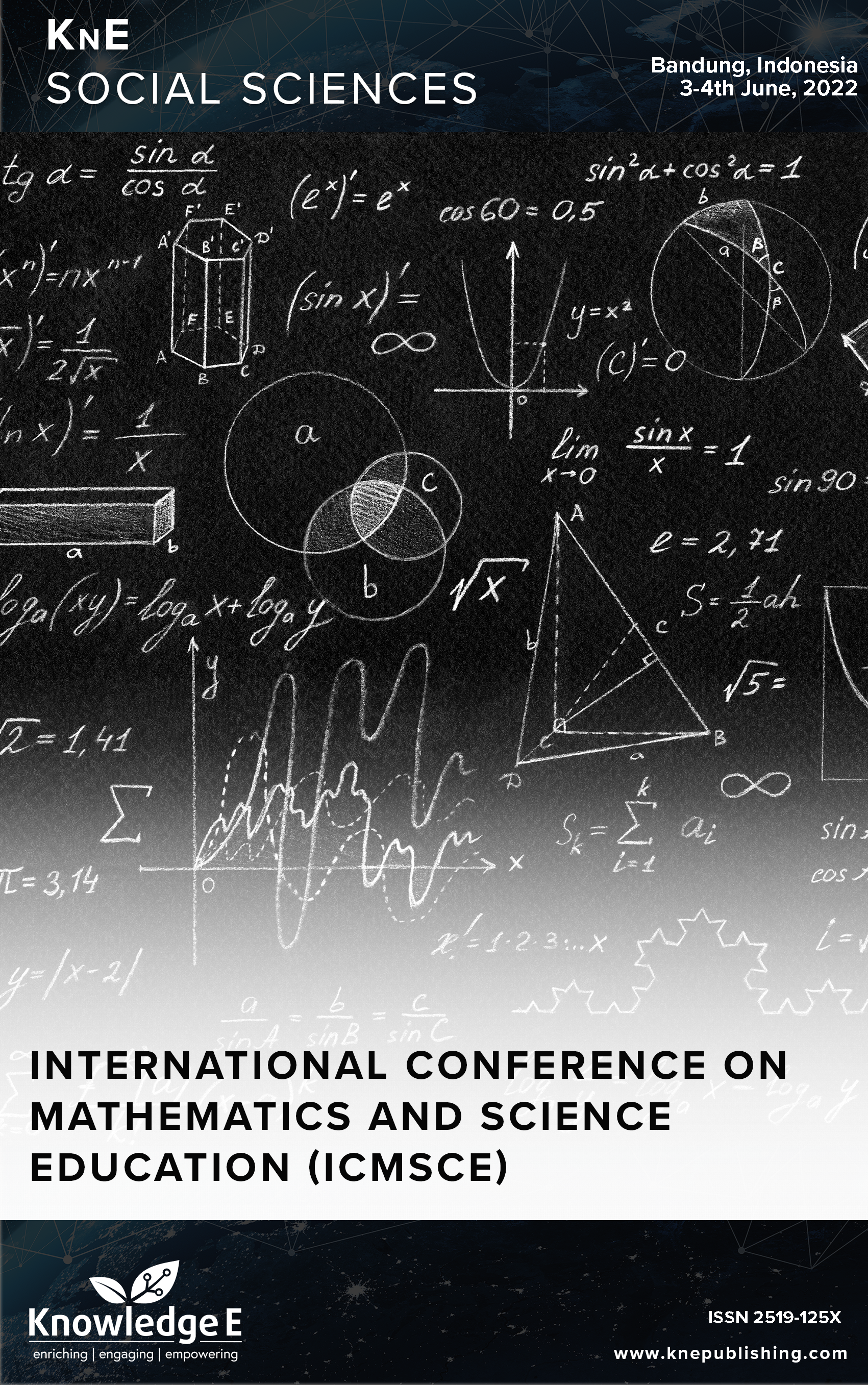Problem-solving Ability of Fifth-graders in Mathematical Word Problem
DOI:
https://doi.org/10.18502/kss.v9i8.15625Abstract
This study aims to analyze the students’ problem-solving skills in solving the daily problems that deal with the operations of fractions. This research was conducted at a State Elementary School in Bandung City, West Java Province, Indonesia. The research method used was a qualitative approach with a narrative case study method. The participants in this study were 36 students of grade V. Data were collected from student test results, interviews, results between students and teachers. Data analysis was performed using interpretational analysis. The results show that the fifth-grade still have difficulty in understanding the problems. Other interesting findings were: (1) Some students still do not understand the rules or how to change mixed numbers into ordinary fractions or vice versa. (2) Some students still do not understand how to design and implement solving strategies. (3) Some students still do not understand the concepts and procedures of counting operations, such as addition, subtraction, multiplication, and division. (4) Some students do not conclude the final result from the answer to the story problem (5). Some students do not validate the question of the story problem, she/he just give answers to mathematical solutions.
Keywords: problem-solving ability, mathematical word
References
Masfuah S, Pratiwi IA. Pentingnya kemampuan pemecahan masalah dan karakter bersahabat. Jurnal PGSD. 2018;1(0291):178–83.
Holmes EE. New directions in elementary school mathematics: interactive teaching and learning. Prentice Hall; 1995.
BSNP, “Panduan penyusunan kurikulum tingkat satuan pendidikan jenjang pendidikan dasar dan menengah.,” 2006.
Gabriel F, Coché F, Szucs D, Carette V, Rey B, Content A. A componential view of children’s difficulties in learning fractions. Front Psychol. 2013 Oct;4(715):715. DOI: https://doi.org/10.3389/fpsyg.2013.00715
Young-Loveridge J, Taylor M, Hàwera N, Sharma S. Year 7–8 students’ solution strategies for a task involving addition of unlike fractions. Findings from the New Zealand Numeracy Development Projects; 2006. pp. 67–86.
Siap AD. Biyoloji ögretmenlerinin biyoloji ögretiminde kars??last??klar?? sorunlar (erzurum örnegi). Kostamanu Education Journal. 2004;12(1):69.
Wijaya A. The relationships between indonesian fourth graders’ difficulties in fractions and the opportunity to learn fractions: a snapshot of timss results. Int J Instr. 2017;10(4):221–36. DOI: https://doi.org/10.12973/iji.2017.10413a
Cadež TH, Kolar VM. How fifth-grade pupils reason about fractions: a reliance on part-whole subconstructs. Educ Stud Math. 2018;99(3):335–57. DOI: https://doi.org/10.1007/s10649-018-9838-z
Gabriel F. Understanding magnitudes to understand fractions. Aust Prim Math Classr. 2016;21(2):36–40. DOI: https://doi.org/10.3196/219458451669157
Getenet S, Callingham R. “Teaching fractions for understanding: addressing interrelated concepts.,” In: In: 40th Annual Conference of the Mathematics Education Research Group of Australasia. pp. 277–284 (2017).
Creswell J. Third edition research design qualitative, quantitative, and mixedmethods research., 2009.
Bogdan RC, Bilken SK. “Quality research for education: an introduction to theory and methods” (2007).
Gall MD, Borg WR, Gall JP. “Educational research: an introduction,” (1996).
M.& H.A. Miles, Qualitative data analysis., 1994.
Reys R, Lindquist M, Lambdin DV, Smith NL. Helping children learn mathematics. John Wiley & Sons; 2014.
Demiri L. “Researching teachers and pre-service teachers’ knowledge of students’ misconceptions about fractions,” Unpublished Master Dissertation, Marmara Üniversity, Istanbul. p. 2013.
Park J, Güçler B, McCrory R. Teaching prospective teachers about fractions: historical and pedagogical perspectives. Educ Stud Math. 2013;82(3):455–79. DOI: https://doi.org/10.1007/s10649-012-9440-8
Mack NK. “Learning rational numbers with understanding: the case of informal knowledge.,” Rational numbers: An integration of research. pp. 85–105, 1993.
Posamentier S, A & Krulik, “Problem solving in mathematics grades 3-6, powerful strategies to deepen understanding,” (2009).
Deringöl Y. Misconceptions of primary school students about the subject of fractions. International Journal of Evaluation and Research in Education. 2019;8(1):29–38. DOI: https://doi.org/10.11591/ijere.v8i1.16290
Khairunnisak C, Maghfirotun S, Juniati AD, De Haan D. Supporting fifth graders in learning multiplication of fraction with whole number. Journal on Mathematics Education. 2012;3(1):71–86. DOI: https://doi.org/10.22342/jme.3.1.615.71-86

